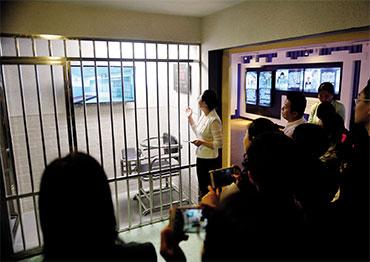Experts believe the document marks a major shift in the focus of China’s ongoing anticorruption drive. “A fundamental rationale behind China’s anti-graft drive in the past was that as long as public officials were held accountable for their behavior, corruption could be solved,” said Mao Zhaohui, director of the Center for Anti-corruption and Clean Government at the Renmin University of China in Beijing.
Mao told NewsChina that the approach resulted in law enforcement primarily focusing on officials who took bribes. As long as bribers cooperated with authorities in their investigations, most would not face criminal charges.
According to data from China Judgments Online, an official database of judicial rulings run by the Supreme People’s Court, China’s court system filed 9,233 documents involving those charged with taking bribes between 2018 and 2019. By comparison, only 3,322 documents involving defendants accused of offering bribes were filed during the same period.
Luo Xing, an associate fellow with the China Academy of Discipline Inspection and Supervision, told NewsChina that another reason why authorities tend to adopt a more relaxed policy toward bribers is that most are entrepreneurs, often founders and heads of major local firms.
According to a CCDI report, 88.4 percent of bribers prosecuted by authorities in Hangzhou, Zhejiang Province are businesspeople and entrepreneurs.
“The concern is that their downfall would disrupt the operations of their firms, which could cause unemployment and major local economic instability,” Luo said.
“For those who win government contracts through bribery, many were allowed to carry on with these contracts,” Mao said.
But as corruption remains prevalent after eight years of the high-profile anti-graft drive, China’s leadership is now rethinking the approach. “It has become clear that the ongoing anti-graft campaign has not been a deterrent in business circles,” Mao said.
Instead, some are even more brazen in their bribery, becoming repeat offenders.
Among them is Chen Zuyuan, an entrepreneur from Guangdong Province. In 2007, Chen was implicated in the case of Hu Xing, deputy chief of the provincial transportation department of Yunnan Province, who received a life sentence for accepting bribes totaling 32 million yuan (US$5m). Eighty percent of the amount came from Chen, who cooperated with prosecutors and was not charged.
Eight years later in 2015, Chen was caught bribing officials again. He offered more than 50 million yuan (US$7.7m) to Wan Qingliang, former Party chief of Guangzhou, capital of Guangdong Province. Chen was convicted in 2018 and sentenced to four years, a punishment far more lenient than the life sentence Wan received in 2016.
“We must be conscientiously aware that a major reason corruption continues to exist is that bribers have resorted to whatever means necessary to entrap Party cadres,” the document said.

 Old Version
Old Version
